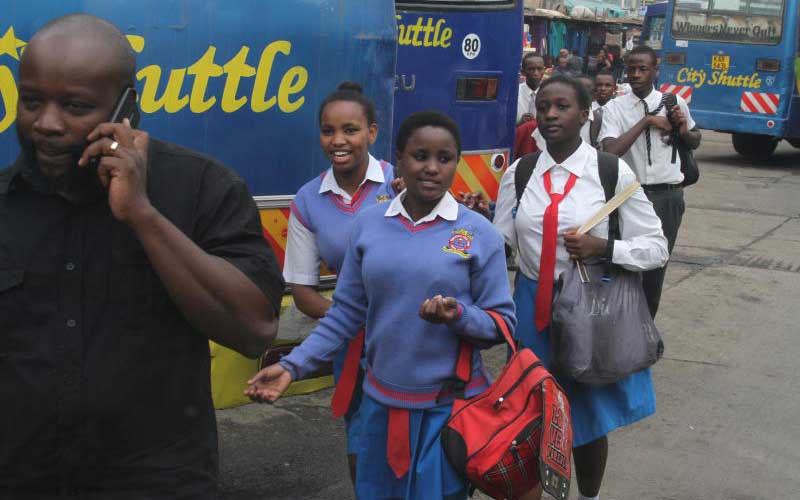×
The Standard e-Paper
Stay Informed, Even Offline

Students on their way home after schools were closed following an order by President Uhuru Kenyatta on March 15 over coronavirus outbreak. [File, Standard]
The national examiner has cancelled exams scheduled for this month in colleges.